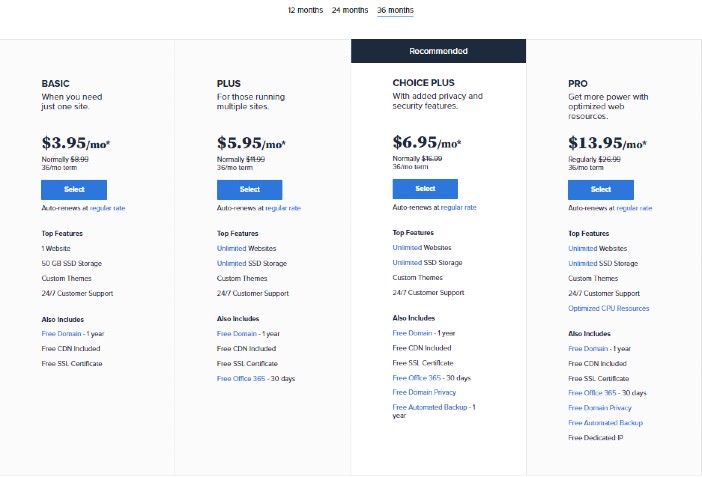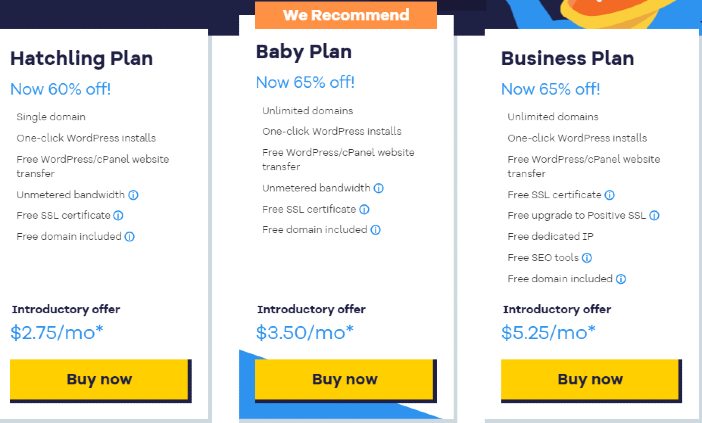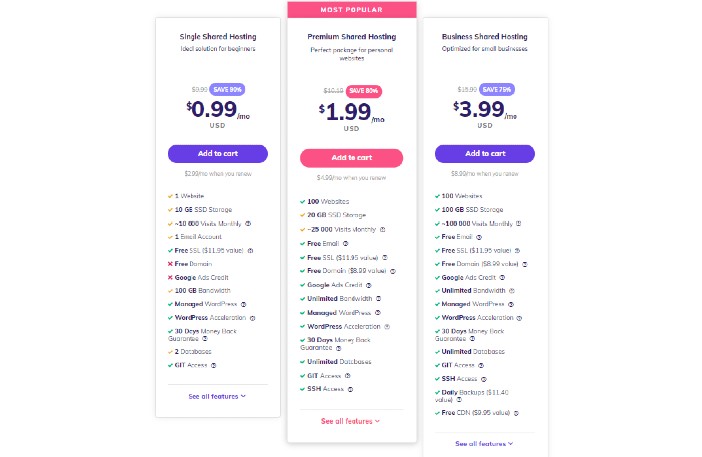In computing and web hosting, bandwidth can be defined as the maximum amount of data that can be transferred in a network from one point to another, in a given amount of time. It is basically the capacity of a network communications link to transmit the most data it can in a period of time. So the more bandwidth the communication link has, the more it can send and receive at that point in time.
Here’s a simple illustration to make things clearer. Consider two pipes of different diameters used to transport water underground. The bandwidth of each pipe is the capacity of the pipe to allow water to flow through it at any specific time. Of course, it makes sense to assume that the larger pipe will have more water flowing through it than the smaller one.
Bandwidth is often used side by side with speed and sometimes interchangeably. They are not the same thing, though. Let’s go back to our example, shall we? The water flowing through the pipes may be doing so at different rates. That rate is the speed of transmission.
So what is bandwidth as relating to web hosting? Website bandwidth is the rate of traffic and data that can be transmitted between your site and its visitors. It is technically the data-carrying capacity of the network and indicates how much data can travel from your website to its users.
Why is Bandwidth Important?
Higher bandwidth means that more data can be delivered to your site users per month. It plays a very important role in growing your website’s traffic and sales. According to research by Google, about 53% of mobile phone users will leave a website if it takes more than three seconds to load. Page load speed also plays a vital role in how good a website’s SEO rankings are.
Additionally, high bandwidth means that websites can employ graphics, video, images, and audio to create more enjoyable and dynamic experiences for their visitors.
What is Unlimited Bandwidth?
Shared web host companies constantly tout the term “unlimited (or unmetered) bandwidth” as a major selling point. But is it ever really unlimited? What is unlimited bandwidth anyway?
For the users, unlimited bandwidth means that they are allowed to use as much data and attract as much traffic to their websites as possible. Essentially, it implies that there are no caps to the bandwidth they are allowed.
To be clear, there is technically nothing like unlimited bandwidth. It would simply be too expensive for the web host company to allow unfettered access to bandwidth.
All of these web host providers place some sort of limit on the bandwidth that they offer on their various plans. This limit means that if there is a huge spike in visitors to your website, there may consequently be throttling. Most web hosting providers with “unlimited bandwidth” don’t provide any information on these limits.
So why have marketing claims like “unlimited bandwidth” not been denounced as false? Well, because there are little chance websites on shared hosting plans would be able to use the bandwidth made available for them anyway. Websites on shared hosting plans usually fall within the range of normal bandwidth usage.
How Much Bandwidth Does Your Website Need?
Not all web host companies offer unlimited bandwidth. If your web host does not, it wouldn’t make much sense to buy more than you need. Not buying enough bandwidth is even worse. Whatever the case, you may be interested in knowing just how much bandwidth your website requires.
For new websites or for websites with little in terms of multimedia content or traffic, high bandwidth is not necessary. On the other hand, if your website is established or you run data-heavy content, then low bandwidth would slow things down considerably. This is also the case if your site gets a lot of monthly visitors.
To determine just how much data your website needs, three factors must be considered:
- The number of expected monthly visitors per day.
- The average page size of your website. You can check this using the Pingdom Load Time test tool.
- The average expected page views by your visitors.
These factors can now be combined to determine the bandwidth your website needs monthly by multiplying them.
So,
Average Daily Visitors x Average Page Size x Average Page Views x 30 Days = Bandwidth needed
Bandwidth is usually measured in gigabytes (GB) per month. You must remember to make allowance for possible spikes in traffic.
The Best Web Hosting Companies Offering Unlimited Bandwidth
Yes, really unlimited bandwidth does not exist. But hopping on a shared web host provider offering one means you don’t need to worry about determining how much bandwidth your website needs.
Most small and steadily growing websites have their bandwidth fall into a range that means they don’t get throttled unless there is a terribly abnormal spike in bandwidth usage. This rarely happens.
And so one of these web hosts may just be what you need. They are affordable, and the price does not at a compromise for quality.
1. Bluehost

Pros:
- Free Domains for the first year
- Unlimited Domains and subdomains
- Unlimited websites, storage, and bandwidth
- 24/7 customer support
- 30-day money-back guarantee
- Google and Bing ad credits
- Free SSL certificate
Cons:
- Strictly US servers
- Poor backup options
Launched in 2003, Bluehost is very popular and offers a range of budget-friendly hosting plans. Currently, it hosts more than two million websites.
Bluehost offers unlimited websites and domains in their shared plan, as well as a free domain name and SSL certificate. In terms of unlimited perks, you are offered unlimited storage, bandwidth, and websites. These perks kick off from its Plus plan. The Basic plan which is the entry-level shared plan, only lets users host one website, and comes with 50 GB of storage.
2. HostGator

Pros:
- Unlimited storage and bandwidth
- Flexible billing terms
- 45-day money-back guarantee
- One-click installs
- Free SSL certificate
Cons:
- Poor backups
- Constant upsells
- Mediocre customer support
HostGator has been around for more than two almost two decades now and is largely highly rated. It offers three levels of shared hosting plans. Each of these plans comes with unmetered bandwidth as a perk. One-click WordPress installs and free SEO blog tools are also available. Additionally, you get unlimited domains on all of its plans, bar the Hatchling plan.
HostGator’s shared hosting plans are the ideal choice for personal websites, small businesses, and blogs. It offers a generous 45-day money-back guarantee for new users.
3. Hostinger

Pros:
- Unlimited bandwidth and databases
- Unlimited email accounts
- Free domain
- Free SSL certificate
- 30-day money-back guarantee
Cons:
- Limited customer support
- No dedicated hosted plan
Hostinger was founded in 2004 in Lithuania. It is immensely popular, currently hosts more than 29 million websites. Hostinger has three shared hosting plans. All but one of those plans offer unlimited websites, a free SSL certificate, and WordPress Acceleration. The Single Shared Hosting plan which is more limited will only let you host a single website and use up to 100 GB of bandwidth.
